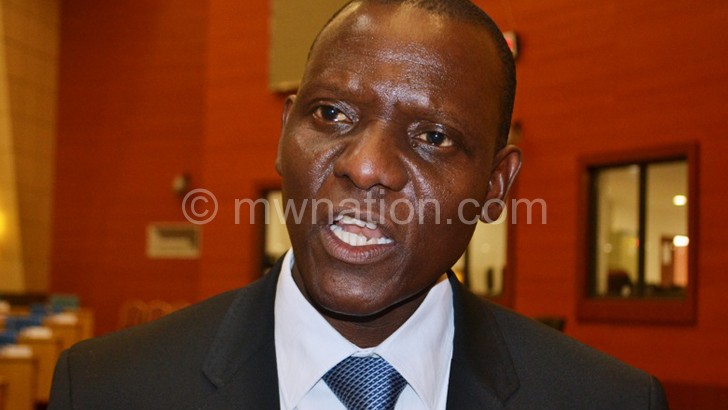‘People had own expectations after polls’
Leader of the House FRANCIS KASAILA, who is also Minister of Transport and Public Works, speaks to our reporter BONIFACE PHIRI about how government has handled business in Parliament and others issues surrounding his ministry. Excerpts:

Q
Opposition MPs have complained that government bulldozed the passing of bills and that you curtailed debate prematurely during the last sitting. There are fears this could lead to half-baked laws. Would you agree?
A
That’s far from the truth. You may have noticed that we refer some bills back to relevant committees for further scrutiny. We have a leadership in the House which is tasked with managing time, hence we know at what point to end debate on a particular bill. We are there to determine what the majority are saying and we take that majority view whether for or against then move to the next stage. Otherwise, we could be spending four weeks on only one business which would be doing injustice to the taxpayers who sponsor our stay in that House. We want to ensure that the money the people pay us is worth the time we spend in the House.
Q
It’s been observed that there are a lot of personal attacks, name calling and emotional exchanges between opposing MPs. Are you proud to lead such a disjointed House?
A
I am not entirely happy with that, but you must remember that we are coming from a very difficult election. People had their own expectations and some thought if they won the elections they would be holding certain positions or benefit out of it in a certain way. Definitely others have not gotten over the elections mood which is understandable, but the best we can do is to ensure that we control it and move on even though it’s quite difficult to control 193 adults who are equal. I know sometimes we behave dishonourably and away from our own standing orders, but this is just our second year and most of the members are new; no wonder you see some of them standing up on a point of order when nothing has gone out of order.
Q
One issue that brought controversy in the House during this meeting had to do with the introduction of automated parking systems at Kamuzu and Chileka airports. Why are civil servants working there being forced to pay higher fees for parking, as we heard from some MPs?
A
Paying parking fees at KIA and Chileka airports started a long time ago, but what we noticed is that some people used to park their vehicles along the terminal buildings because they didn’t want to pay. This was a security threat in as far as the civil aviation sector is concerned because somebody with ill-intentions could go there with a vehicle loaded with explosives. With the manual system we noticed that people were duplicating receipts so that some of the resources went into their pockets. With the automated system, however, all resources will be going into the appropriate account. Motorists will now be paying as they enter the car park and the minimum one pays for 20 minutes is K300 and it goes up according to the amount of time you spend there. For all government departments, however, we have given them four to six cards they can use free of charge. However, what I, personally have found out is that some of the officers there are operating taxis without registering, meaning they want to conduct business without paying. So, the issue is not personal parking but their vehicles being used for business which we will not allow.
Q
We understand that your ministry is introducing toll fees for motorists. How will this work?
A
We will introduce toll fees on the roads so that the money realised will be used to upgrade the same roads the motorists are travelling on. We will identify private operators to install toll-gates in some sections of our roads where motorists will pay fees. This will also be an automated system to enhance accountability and transparency. But all of us need to agree on this because others want to confuse things here.
Q
We have been reliably informed that almost 70 percent of minibuses plying on the roads in the country are displaying fake insurance batches. Are you aware of this?
A
I have heard such reports and we are seriously looking into the matter. We intend to link the new system at the Directorate of Road Traffic and Safety Service (DRTSS) with insurance companies because it’s very difficult for us to know exactly whether or not an insurance batch displayed is genuine because it’s provided outside the system. However, we would also like to see the insurance companies themselves being proactive in order to protect their businesses. My ministry officials, the police and DRTSS are all ready to help them conduct spot checks. Otherwise, if people can print fake insurances, it means the companies are losing business. n





